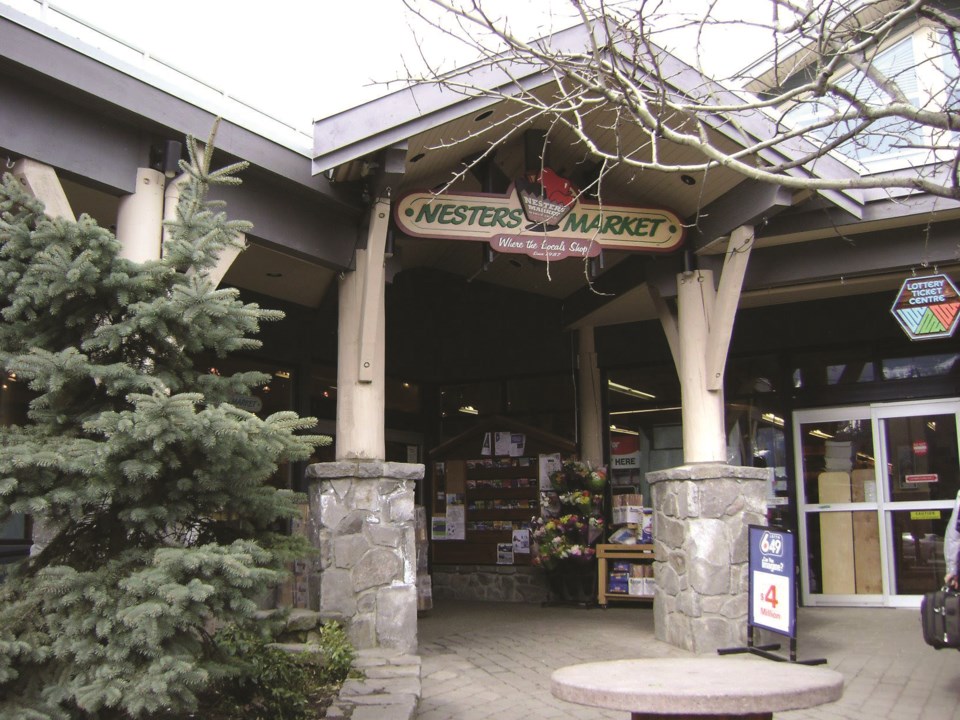Last month, the Whistler Centre for Sustainability (WCS) presented the Sea to Sky Food Recovery Strategy and Action Plan to Whistler officials, what is likely the most comprehensive view yet of food waste in the corridor.
The numbers, to put it mildly, are staggering, and demonstrate the enormous potential for food recovery among hotels, restaurants, grocery stores and personal households across the region. Estimates suggest there is between 6,000 and 9,400 tonnes of edible food waste generated in the Sea to Sky annually, with only between 165 and 530 tonnes of that being recovered for redistribution. Those totals amount to between $26.9 million and $42.9 million in yearly food waste costs, and between 21,500 and 62,700 tonnes of CO2 emissions. Broken down to the community level, Whistler generates between 3,130 and 4,880 tonnes of edible food waste a year, with only between 19 and 275 tonnes of that being recovered.
Always a difficult thing to measure, getting an even better handle on our food waste will be key to addressing the issue in the future, says Shannon Gordon, planning, engagement and sustainability coordinator at the WCS.
“Having a better handle on the whole system is something that can be improved and something we may try and help with just given our background in monitoring and reporting,” she said.
That was borne out at Nesters Market, where about a year ago the store began working with FoodMesh, a Vancouver-based company that helps organizations “waste less and feed more” by diverting and measuring unsold food. Although much of the recovery work Nesters was doing—for example, making soups, juices and smoothies out of unsellable or surplus produce—was already underway before FoodMesh came onboard, having the ability to measure the amount of recovered food proved an effective incentive for staff.
“We decided there would be no more wasting anything,” said Bruce Stewart, GM of Nesters Market. “I think we’re doing a much better job at it than we did in the past, and FoodMesh is just that one little step to help us keep it organized that incentivizes us to continue doing it and do an even better job of it.”
Between May and November of this year, Nesters recovered approximately 6,800 kilograms of food that was all donated to the Whistler Food Bank. That total doesn’t take into account the amount of food recovered internally in the store, nor does it include items donated by Nesters customers intended for the food bank.
Nesters staff also worked with the food bank to create a more flexible pickup and dropoff schedule this year, which was benefitted by the addition of cold storage at the food bank that meant fewer items were going to waste.
“Before there was a struggle with being able to store anything that needed to be refrigerated or frozen, so now we can even give them meat products that are close to expiring. We throw it in our freezer and then they can hand it out frozen,” said Stewart, noting that now deliveries to the food bank happen six days a week.
Following the release of the food recovery plan, the organizers of Whistler’s annual food and drink festival, Cornucopia, jumped at the chance to do their part. At the 11th hour, event producer Watermark Inc. added two events aimed at promoting food recovery: Fridge Miracles: Making Something Out of Nothing, where chef and Milestones Whistler GM Bruce Worden will create several soups made entirely from local kitchen scraps and leftovers; and Pickle n’ Preserve, where natural food supplier Astrid’s Fine Foods will walk guests through pickling, preserving, smoking and dehydrating staple ingredients people have lying around their kitchen. Both events are set for the festival’s final day, Nov. 28. Tickets are available at whistlercornucopia.com.
Taking it a step further, Cornucopia organizers have also taken the lead on a new initiative dubbed the Sea to Sky Soup Kitchen, which will see local chefs committing to making soups on a certain number of weeks a year that will be donated to food banks across the corridor. The first batch of soups will be donated to the Whistler Food Bank at the conclusion of the festival, thanks to Worden, who Watermark president Sue Eckersley called “the godfather of the Sea to Sky Soup Kitchen.”
“All credit to Bruce Worden who said, ‘Hey, I can make soup for the food bank.’ I was like, ‘Well, if you can, why can’t others?’” she added.
After the first round of donations, Eckersley said the hope is to launch the weekly program in earnest in the new year.




